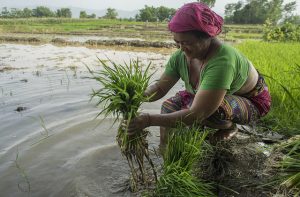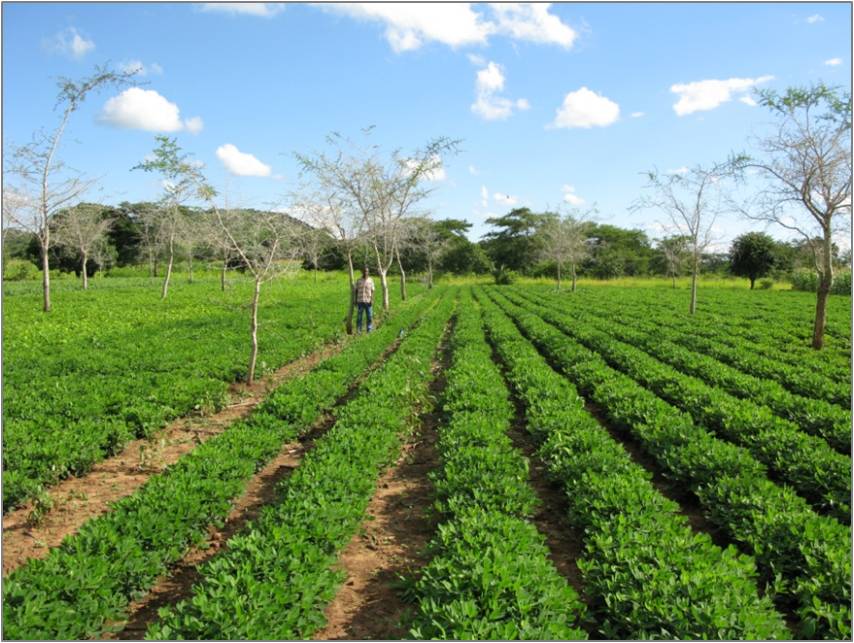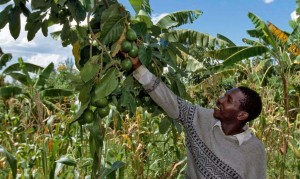Originally published on the CIMMYT website.
 Wheat, rice, maize, pearl millet, and sorghum provide over half of the world’s food calories. To maintain global food security under climate change, there is an increasing need to exploit existing genetic variability and develop crops with superior genetic yield potential and stress adaptation.
Wheat, rice, maize, pearl millet, and sorghum provide over half of the world’s food calories. To maintain global food security under climate change, there is an increasing need to exploit existing genetic variability and develop crops with superior genetic yield potential and stress adaptation.
Climate change impacts food production by increasing heat and water stress among other environmental challenges, including the spread of pests, according to a recent study published by researchers at the International Maize and Wheat Improvement Center (CIMMYT). If nothing is done to currently improve the crops we grow, wheat, maize and rice are predicted to decrease in both tropical and temperate regions. Wheat yields are already slowing in most areas, with models predicting a six percent decline in yield for every 1 degree Celsius increase in global temperature.




